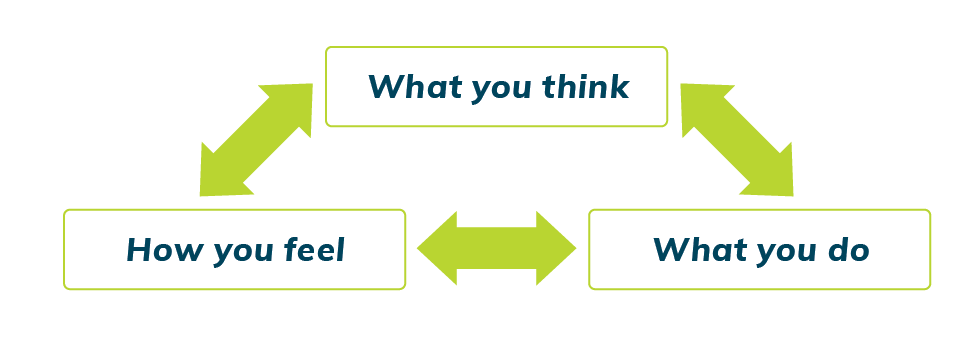
Managing my emotions
There is a link between your emotions and your pain. Learning how to manage your emotions is a key to managing your chronic pain.
Emotions are a normal part of life. After a brain injury it can be hard to manage your emotions. You may get angry easily, be more anxious or feel down for no reason. This can settle down over time, but when these emotions hang around, you can get stuck feeling like this all the time. If this continues, it can also impact on how you manage your chronic pain.
There is a link between your emotions and your pain – this is not to say that your pain is not real, but when you feel strong emotions such as anger, sadness or anxiety, this can make your pain worse. When your pain is worse, this often makes the emotions stronger. Learning how to manage your emotions is a key part to getting on top of your chronic pain.
Remember, the way you think, act and feel are also connected.

Over time, it can be hard to recognise emotions or tell them apart. To help you, check in with your thoughts, what is happening in your body and what you are doing (or not doing). This will give you an idea about the emotion you are feeling. Read the table below to get some ideas on what other people say they think, feel and do when they have these emotions.
| Emotion | What you think | What you feel in your body | What you do |
|---|---|---|---|
ANGER | This is so unfair, people are out to get me. | Heart races, muscles tighten, breathing faster, feel hot. | Yell, threaten or confront others. |
SADNESS | I will never be able to do what I used to do. I miss my old life. | Heavy body, low energy, empty. | Withdraw, keep to yourself, pull away, become less active. |
ANXIETY | My pain will get worse. This is too scary. | Heart races, muscles tighten, breathing faster. | Stop activities, pull-out of events or situations. |
STRESS | I cannot cope with my pain. I cannot change my situation. | Upset tummy, trouble sleeping, tense muscles, restless. | Over or under eat, use unhelpful coping strategies like drugs and alcohol. |
Did you know that your emotions are sending you a message?
These messages make you aware of what is going on around you. This could be a something small, like being cut off while you are driving, or bigger things like dealing with the loss of a loved one. Each emotion tells you a different message.
The anger you feel when you get cut off while driving tells you to lookout for unsafe drivers, and the grief you feel when a loved one dies shows the strength of your love for that person. Some emotions are more pleasant than others, but they are all important signs to look out for.
Once you start being aware of your emotions, you can begin to learn ways to manage these emotions in the moment.
There are tips and ideas on how to manage these emotions in the Managing my emotions guide. Read through these and then make a plan to manage your emotions using the Managing my emotions worksheet and learn to Be Pain Smart.
